FOOD
30 Healthy Foods That Don’t Cost a Fortune
Published
8 months agoon

Shutterstock
Eating healthily doesn’t have to cost a fortune. By planning and shopping wisely, you can stock your kitchen with nutritious and cost-effective foods. This guide showcases 30 budget-friendly healthy foods that are versatile and easy to integrate into your meals. From protein-rich beans to fiber-filled oats, these foods will assist you in maintaining a balanced diet without straining your wallet. Keep reading to learn how you can eat well and cut costs with these healthy options.
Oats

Shutterstock
Oats are a fantastic source of fiber and nutrients, making them an ideal breakfast choice. They can be used in various dishes, from classic oatmeal to baked goods like muffins and cookies. Oats are also relatively inexpensive, especially when bought in bulk. Additionally, they can help lower cholesterol levels and improve heart health.
Eggs

Shutterstock
Eggs are an incredibly versatile and affordable food that provides a high-quality source of protein. They can be prepared in many ways, including boiling, poaching, frying, and baking in dishes like quiches and frittatas. In addition to being an excellent source of protein, eggs are also rich in essential nutrients such as vitamin B12, choline, and various other vitamins and minerals. Their versatility and nutritional value make them a fundamental and popular ingredient in a wide variety of cuisines worldwide.
Bananas

Shutterstock
Bananas are an excellent source of potassium, an essential mineral that plays a vital role in maintaining proper heart function and muscle health. In addition to potassium, bananas contain natural sugars like sucrose, fructose, and glucose, making them a great energy-boosting snack. Their versatility allows them to be enjoyed on their own or as an ingredient in various recipes. Bananas are also rich in fiber, which promotes healthy digestion and can contribute to a feeling of fullness. Their natural sweetness makes them a healthier alternative to processed snacks high in refined sugars and artificial additives.
Beans

Shutterstock
Beans are a terrific source of plant-based protein, making them a valuable addition to any diet. They come in a wide range of varieties, with popular options including black beans, pinto beans, and kidney beans, each offering a unique flavor and texture. Beans are an excellent and economical food choice whether purchased canned or dried. In addition to their protein content, beans are also rich in fiber, which supports healthy digestion and promotes a feeling of fullness. These versatile legumes can be incorporated into a diverse array of dishes, including soups, salads, stews, and can even serve as an alternative to meat in various recipes.
Brown Rice
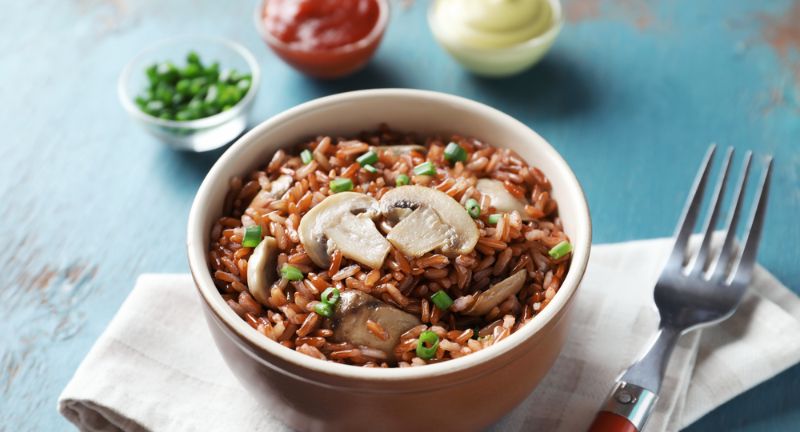
Shutterstock
Brown rice is a highly nutritious whole grain with numerous health benefits. It is not only more affordable than many other grains, but also serves as an excellent base for a wide variety of meals, including stir-fries, casseroles, and salads. Compared to white rice, brown rice contains higher levels of fiber and essential nutrients. Additionally, it is a good source of magnesium and selenium, which are crucial in supporting overall health and well-being.
Greek Yogurt
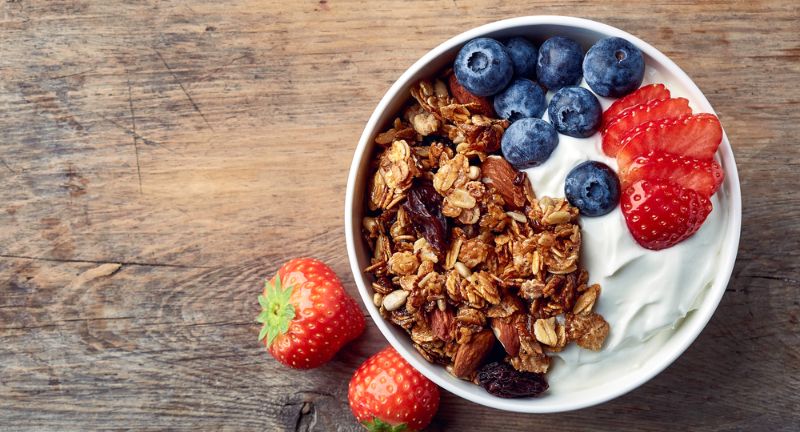
Shutterstock
Greek yogurt is a nutritious dairy product that is strained to remove whey, resulting in a thicker, creamier consistency than regular yogurt. It is packed with high-quality protein and contains probiotics, such as bifidobacteria and lactobacillus, which are beneficial for digestive health. The rich protein content in Greek yogurt not only helps in keeping you feeling full for longer, but also aids in muscle maintenance and repair. Whether enjoyed on its own, paired with fresh fruits, or used as a base for smoothies and dips, Greek yogurt is a versatile and satisfying option for a healthy snack or breakfast.
Sweet Potatoes

Shutterstock
Sweet potatoes are an excellent source of essential nutrients, particularly vitamins A and C, and dietary fiber. Their natural sweetness makes them a versatile ingredient that enhances both savory and sweet dishes. Whether roasted, mashed, or used in dishes such as fries and casseroles, sweet potatoes offer a range of culinary possibilities. Additionally, they are both affordable and widely available throughout the year.
Canned Tuna

Shutterstock
Canned tuna is a budget-friendly and versatile source of high-quality protein and essential omega-3 fatty acids. Its convenience makes it popular for various dishes, including salads, sandwiches, and casseroles. In addition to its protein and omega-3 content, tuna is also a rich source of vital nutrients such as vitamin D and selenium. Opting for canned tuna in water instead of oil can benefit those looking to reduce their calorie intake.
Frozen Vegetables

Shutterstock
Frozen vegetables can be a budget-friendly and nutritious alternative to fresh produce. Thanks to their peak ripeness, they are packed with essential vitamins and minerals, which remain preserved through the freezing process. These vegetables offer convenience, as they can be readily available for quick and easy meal preparations and as side dishes. They are versatile ingredients, suitable for various dishes such as soups, stews, stir-fries, and casseroles, enhancing both the visual appeal and nutritional value of your meals.
Peanut Butter

Shutterstock
Peanut butter is a highly nutritious spread rich in protein and healthy fats, making it an excellent addition to various dishes. Its versatility allows it to be used in sandwiches, smoothies, or as a stand-alone snack. In addition to its rich flavor, peanut butter also contains essential vitamins and minerals, such as vitamin E and magnesium. It is best to choose natural peanut butter without added sugars or hydrogenated oils for the healthiest option. This allows you to enjoy all the nutritional benefits without any unnecessary additives.
Whole Wheat Pasta
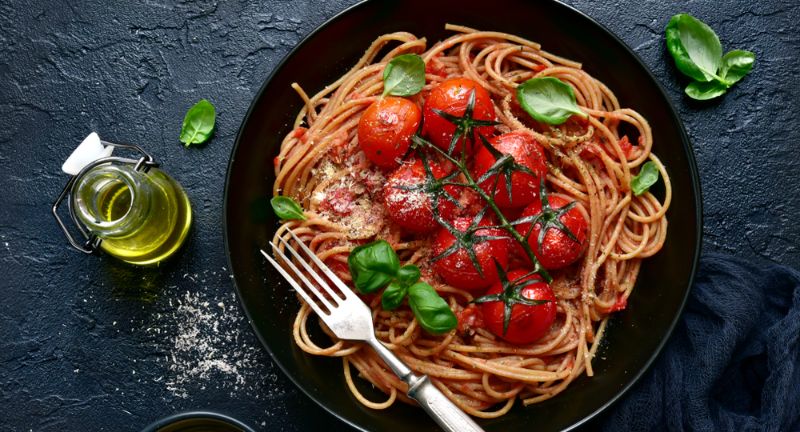
Shutterstock
Whole wheat pasta is a nutritious and wholesome option with numerous health benefits. Unlike regular pasta, whole wheat pasta is rich in fiber and essential nutrients, making it an excellent choice for anyone looking to incorporate healthier ingredients into their diet. Its versatility allows for various culinary uses, from traditional spaghetti dishes to innovative casseroles and refreshing salads. Due to its higher fiber content, whole wheat pasta promotes a feeling of fullness and satiety, making it a great option for those seeking to manage their appetite. It also serves as a valuable source of complex carbohydrates, delivering sustained energy to support an active lifestyle.
Carrots

Shutterstock
Carrots are a widely available and adaptable vegetable packed with beta-carotene, an important compound converted into vitamin A in the body. Vitamin A is essential for maintaining good vision, healthy skin, and a strong immune system. In addition to beta-carotene, carrots are a good source of fiber, potassium, and antioxidants. Their crunchy texture and sweet flavor make them perfect for snacking, and they can also be a delightful addition to salads or cooked in soups and stews. Whether enjoyed raw, roasted, steamed, or pureed into sauces, carrots are a nutritious and versatile addition to any diet, supporting overall health and well-being.
Apples

Shutterstock
Apples are an incredibly versatile fruit that is not only affordable but also packed with essential nutrients. They are an excellent source of dietary fiber, vitamin C, and various antioxidants. Whether enjoyed on their own as a snack or incorporated into dishes like salads, baked goods, or savory recipes, apples provide a natural sweetness that makes them a healthier choice than sugary treats. Their nutritional value and flexibility make them a great addition to a balanced diet.
Lentils

Shutterstock
Lentils are a versatile and nutritious legume that provides a wealth of benefits. These protein-packed pulses are not only rich in fiber and iron but also contain a variety of essential nutrients. One of the great things about lentils is that they cook relatively quickly, making them a convenient and accessible ingredient for all kinds of recipes. Whether you’re making soups, stews, salads, or side dishes, lentils can be a valuable addition to your culinary repertoire. For those following a plant-based diet, lentils offer an affordable and protein-rich alternative to meat. Their high fiber content not only aids in digestion but also promotes a feeling of fullness, making them a valuable addition to any balanced diet.
Spinach

Shutterstock
Spinach is a nutrient-rich leafy green that is relatively inexpensive, particularly when bought frozen. It’s high in iron, vitamins A and C, and folate, making it a great addition to a healthy diet. Spinach can be used in salads, smoothies, soups, and as a cooked side dish. It’s also low in calories, making it a great option for those looking to manage their weight.
Chicken Thighs

Shutterstock
Chicken thighs are a budget-friendly and equally nutritious alternative to chicken breasts. Due to their flavor and versatility, they can be utilized in an array of recipes, ranging from stir-fries to oven-baked casseroles. Chicken thighs boast a higher fat content, resulting in juicier and more flavorful meat. Additionally, they serve as an excellent source of protein, as well as essential vitamins and minerals, contributing to a well-rounded and balanced diet.
Canned Tomatoes

Shutterstock
The use of canned tomatoes in cooking is incredibly versatile, making it a valuable and budget-friendly ingredient due to its long shelf life. Canned tomatoes can be used in an extensive variety of dishes, including but not limited to soups, stews, sauces, and casseroles. They are packed with essential nutrients, such as vitamins A and C, along with beneficial antioxidants like lycopene, which has been linked to heart health. Their convenience makes them an essential pantry item for quick and easy meal preparations.
Oranges

Shutterstock
Oranges are an excellent source of vitamin C, which supports immune function and skin health. They are also high in fiber, which aids in digestion. Oranges make a great snack, can be juiced, or added to salads and desserts. Their natural sweetness and refreshing taste make them a popular and affordable fruit choice.
Cabbage

Shutterstock
Cabbage is a highly economical and nutritious vegetable. It is a rich source of essential nutrients such as vitamins C and K. This versatile vegetable can be incorporated into a variety of dishes including salads, soups, stews, and stir-fries. Additionally, cabbage is an excellent source of fiber, promoting healthy digestion and overall gut health. Its long shelf life and affordability make it an excellent choice for those looking to maintain a budget-friendly and healthy diet.
Almonds

Shutterstock
Almonds are an excellent choice for a nutritious and satisfying snack due to their high content of healthy fats, protein, and fiber. They also offer a wide array of essential vitamins and minerals, such as vitamin E and magnesium. Purchasing almonds in bulk can be a cost-effective option, making it easier to incorporate them into your diet. Almonds are versatile and can be enjoyed as a standalone snack, mixed into yogurt for added crunch, or utilized in various baking and cooking recipes. Their nutritional benefits make them a valuable addition to any diet.
Chickpeas
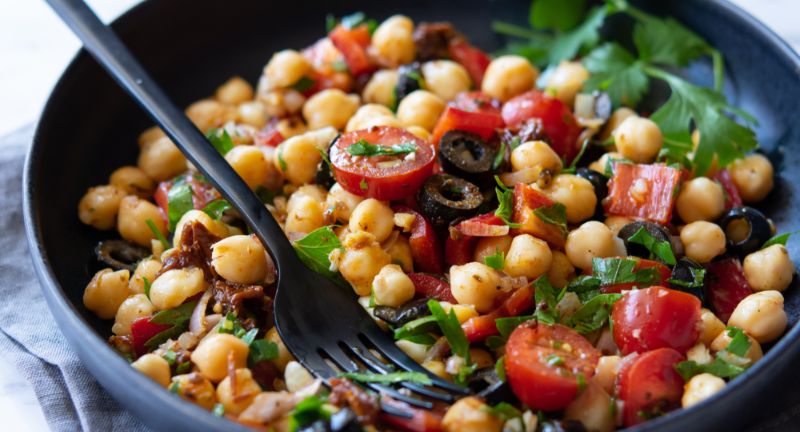
Shutterstock
Chickpeas, or garbanzo beans, are a versatile and nutritious legume. They are high in protein, fiber, vitamins, and minerals such as folate and iron. Chickpeas can be used in various dishes and are an affordable staple, especially when bought dried and cooked at home. They make an excellent addition to salads, stews, pasta, and soups.
Potatoes

Shutterstock
Potatoes are a versatile and filling food that is very affordable. They are a good source of vitamins C and B6, as well as potassium and fiber. Potatoes can be prepared in numerous ways, including baked, mashed, roasted, or turned into fries. Their versatility makes them a staple in many diets worldwide.
Onions

Shutterstock
Onions are an inexpensive ingredient that adds flavor and nutrients to a variety of dishes. They are rich in antioxidants and contain compounds that have anti-inflammatory properties. Onions can be used in soups, stews, stir-fries, and salads, adding depth and taste. They are also believed to support heart health and boost the immune system.
Frozen Berries
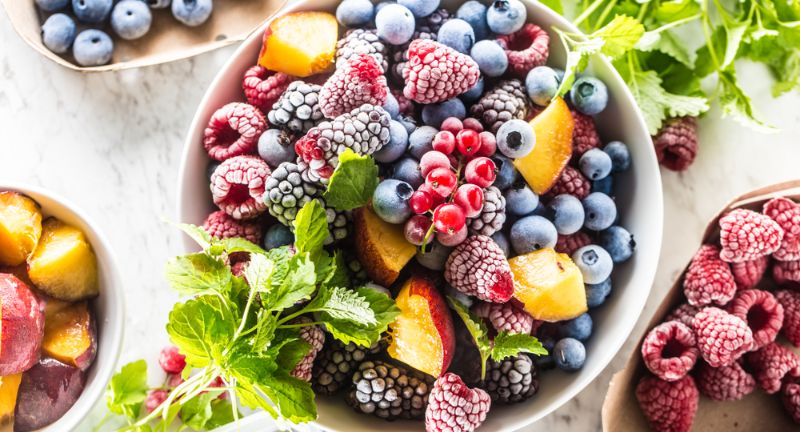
Shutterstock
Frozen berries offer a cost-effective and equally nutritious alternative to fresh ones. They are rich in antioxidants, vitamins, and fiber, making them an excellent choice for those looking to enhance their diet with healthy options. Additionally, frozen berries can be seamlessly incorporated into various recipes, including smoothies, baked goods, and as a flavorful topping for yogurt and cereal. Their extended shelf life makes them a convenient and versatile option for adding fruit to your meals throughout the year.
Canned Salmon

Shutterstock
Canned salmon is an affordable source of omega-3 fatty acids and high-quality protein. It’s convenient and can be used in salads, sandwiches, and casseroles. Canned salmon is also rich in vitamins D and B12, supporting bone health and energy metabolism. It’s a great option for those looking to incorporate more fish into their diet without spending too much.
Broccoli

Shutterstock
Broccoli is an incredibly nutritious cruciferous vegetable that is readily available fresh or frozen and is generally affordable. Packed with essential nutrients, it is a rich source of vitamins C and K, dietary fiber, and a range of powerful antioxidants. Whether steamed, roasted, stir-fried, or used in soups, broccoli is a versatile addition to a variety of dishes. Its health benefits extend to bolstering immune function and contributing to digestive well-being.
Tofu

Shutterstock
Tofu is a versatile, plant-based, affordable, and nutritious protein. It’s rich in protein, iron, and calcium, making it a great meat alternative. Tofu can be used in a variety of dishes, from stir-fries to soups to smoothies. Its mild flavor allows it to absorb the flavors of the dishes it’s cooked with, making it very adaptable in cooking.
Milk

Shutterstock
Milk is a staple in many households, offering a good source of calcium and protein. It’s available in various forms, including cow’s milk and plant-based options like almond and soy milk. Milk can be used in cooking, baking, and as a base for smoothies. It supports bone health and is an affordable way to incorporate essential nutrients into your diet.
Garlic
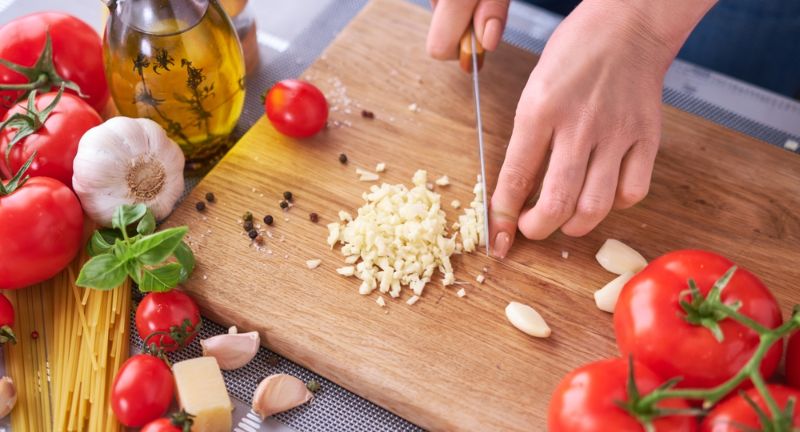
Shutterstock
Garlic is an inexpensive ingredient that adds a lot of flavor and health benefits to meals. It contains compounds with medicinal properties, including allicin, which has antimicrobial and anti-inflammatory effects. Garlic can be used in a variety of dishes, from sauces to soups to roasted vegetables. It’s also known to support heart health and boost the immune system.
Popcorn

Shutterstock
Popcorn is a whole grain that makes for a healthy and affordable snack when air-popped. It’s low in calories and high in fiber, which helps with digestion and keeps you feeling full. Popcorn can be flavored in many ways, from savory to sweet, without adding a lot of calories. It’s a great alternative to more calorie-dense snacks like chips and cookies.
Conclusion

Shutterstock
Eating healthy on a budget is not only possible but also enjoyable with the right foods. By incorporating these affordable, nutrient-dense options into your diet, you can nourish your body without overspending. The key to healthy eating is variety, so don’t be afraid to mix and match these ingredients to keep your meals exciting. With these 30 foods, you have a solid foundation for a balanced diet that supports your health and wallet. Start making smarter choices today and enjoy the benefits of eating well without breaking the bank.
Related Topics:

More From Lifestylogy
-
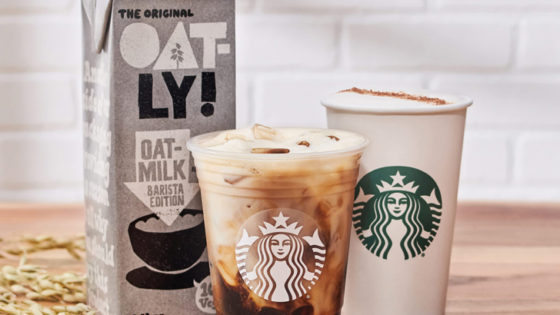

Starbucks Debuting New Oat Milk Inspired Beverages
-


Krispy Kreme Giving Away Free Donuts to Graduating Seniors
-


Chip and Joanna Gaines Open New Restaurant
-


Amazon to Lower Whole Food Prices
-


Cinnabon Teams Up With Carvel to Create Ultimate Dream Dessert
-


KFC, Other Chains Offering Free Delivery During COVID-19 Crisis
-
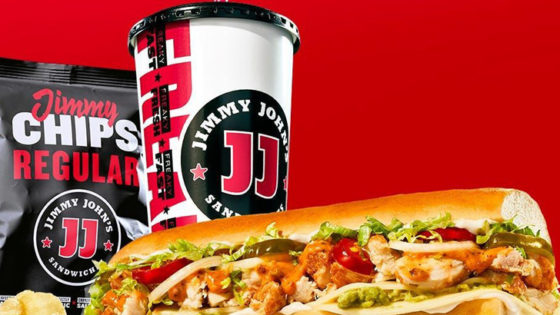

Jimmy John’s Officially Enters the Chicken Sandwich Wars
-
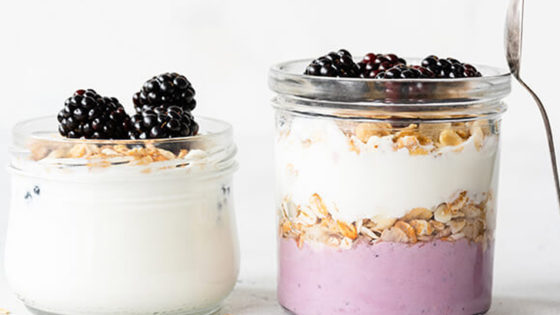

Eating This Twice Per Week Slashes Heart Disease Risks
-


These Boozy Frozen Pops Are All We Need For Summer